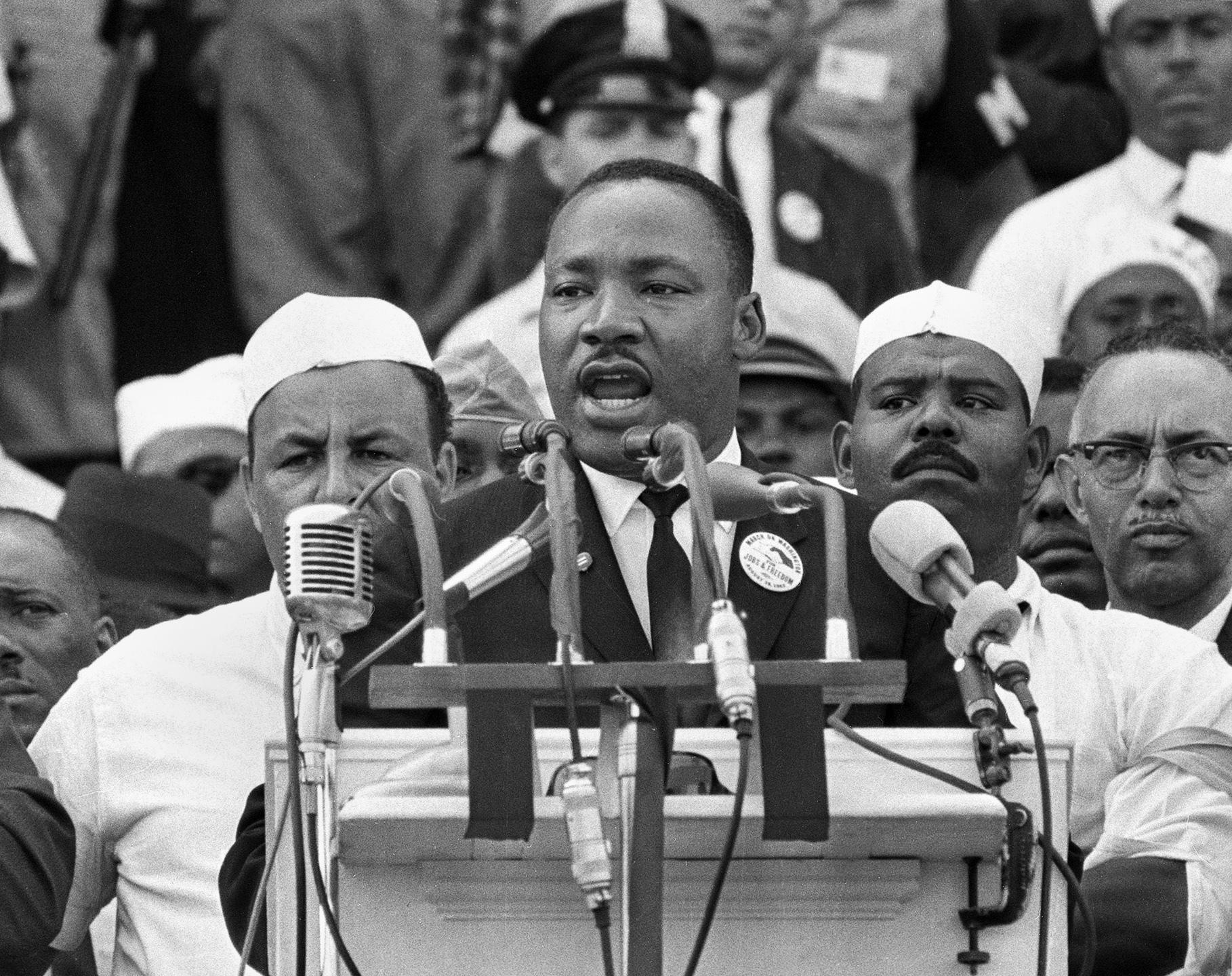Demarcus Bandy spoke authoritatively Monday afternoon as he helped Morgantown’s Community Coalition for Social Justice honor Martin Luther King Jr.’s legacy.
“Structural and Systemic Racism and How to Build an Equitable Future” was the title of his talk.
He delivered a 10-minute treatise in just as many PowerPoint pages on the macro-level inequities – his term – detailing the negative nuances of just what happens in today’s America when a Black person simply tries to make a better away.
The pre-judgements and suppositions, he said, are callous and demeaning.
That nice house in that nice neighborhood you know you can afford?
Probably not going to happen, friend. The bank will say no, because of skin tone and ZIP code.
Sometimes, he said, such profiling is deadly.
Those blue lights in your rearview mirror?
You’ll be advised to keep those hands at 10:00 and 2:00, thank you.
And “Yes, sir” and “No, sir” like your life depends on it – because it just may.
The above talk was just the tip of the iceberg Monday.
Especially since the person who delivered it is just 13 years old.
Demarcus, an eighth-grade student at Mountaineer Middle, wants to be a robotics engineer.
He did some reverse engineering, in the way of his future profession, to look at matters of race and racism – issues that have been around since his parents were his age, and his grandparents, and on and on.
This, he did, by using an iceberg as a visual metaphor. That is, what is spied on the water’s surface doesn’t even come close to what’s lurking underneath.
Whose history?
Jerry Carr, who is president of the Morgantown-Kingwood NAACP, said young people such as Demarcus who are deftly organizing their own societal awareness, are the ones who can truly achieve Dr. King’s Dream after all.
“Don’t dismiss him because he’s young,” Carr said, during his remarks at the coalition’s observance.
Downtown Morgantown’s Metropolitan Theater is the normal venue for the program, but the theater is shuttered due to the pandemic.
The program made its first-ever online foray this year.
It was co-sponsored by Main Street Morgantown and WVU’s Osher Lifelong Learning Institute, with support by the City of Morgantown.
“West Virginia Civil Rights Leaders,” was the theme of the event, which delved into the histories of such Mountain State advocates as Carter Woodson and Memphis Tennessee Garrison.
Carr doesn’t mind that history. Celebrate it, he said.
It’s the other kind he can do without, he said.
The history where the slain civil rights leader is consigned and sequestered to the amber of the narrative.
One blink, and there’s King on the Mall in Washington, D.C., delivering the Dream, a galvanizing speech that turned out to be largely improvised.
Another blink, and there’s King on the balcony of the Lorraine Motel, with all fingers pointing in the direction of the rifle’s report.
A third blink, and there’s a present-day lawmaker, emoting about dreams and equality, as the voting record and everything else says otherwise.
“I know that some of them have supported voter suppression efforts,” Carr said.
“I know that some of them have remained silent.”
Still yet another blink, though, and there’s Demarcus and his generation who just might affect change at the ballot box, and thus in the halls of power, as they come up.
No one goes up the mountain alone
Those West Virginians who affected change, as said, were the tie-in to this year’s celebration.
Barbara Howe, a retired professor of history from WVU, gave quick mini-lesson on those advocates who forged paths where none existed – bringing it back around to Demarcus at every opportunity.
“West Virginia kids need to see West Virginia role models,” she said earlier.
Ilene Evans, a performance artist based in the Mountain State, brought to life Garrison, known for her national outreach with the NAACP.
Garrison, who died in 1988, started out a teacher and counselor in McDowell County, working with Black families in coal camps.
In her virtual performance, Evans infused Garrison both with coal camp grit and the unconditional love of a Mother Theresa from the hills and hollows.
“I’m coming up on the rough side of the mountain,” Evans as Garrison sang.
History shows that she made it.
All the more reason for the climb, Evans said, breaking character.
TWEET@DominionPostWV




